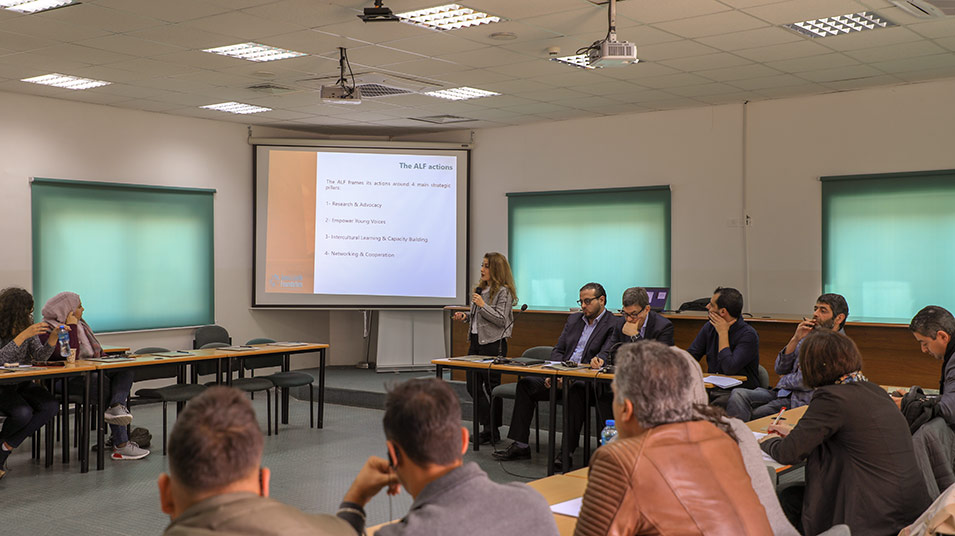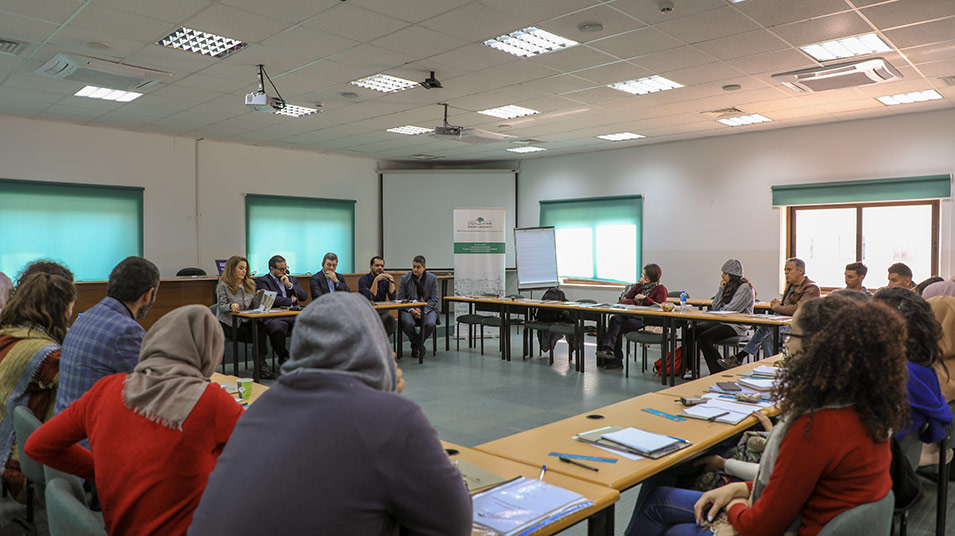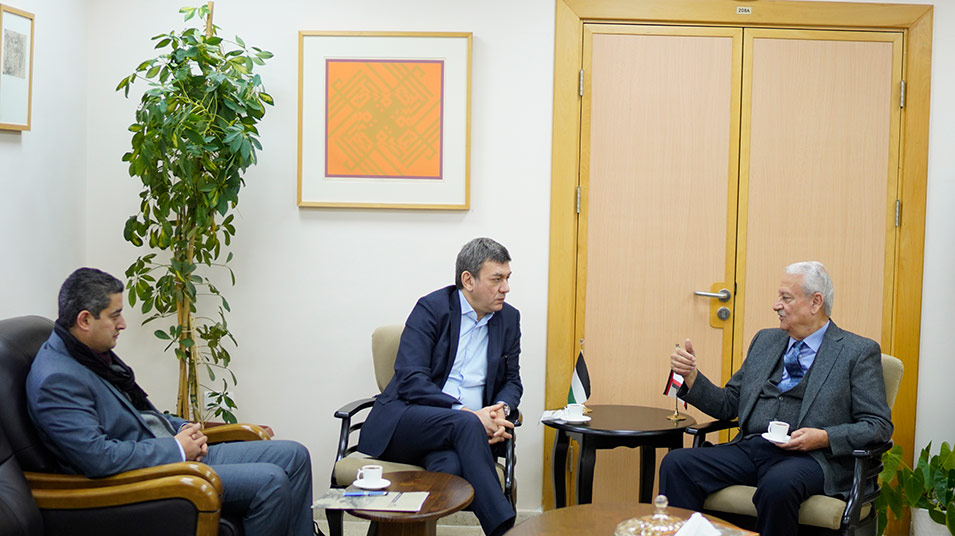Debate discusses intercultural trends in the Euro-Mediterranean area
Birzeit University, Anna Lindh Foundation (EUROMED) and the Mediterranean Universities Union (UNIMED) organized a debate, on November 25, 2019, titled “Intercultural Trends in the Euro-Mediterranean Region” to discuss and criticize the Intercultural Trends Report issued by the Anna Lindh Foundation.
Established in 2010 with the support of the 42 member states of the Euro-Mediterranean partnership that includes countries from the European Union and the Southern Mediterranean, African, and Middle Eastern regions, the report is based on a unique public opinion survey that is carried out among citizens of countries on both sides of the Mediterranean. It serves as an instrument to measure trends in cultural relations, trigger action for change at the policy level, and foster regional cooperation.
The Anna Lindh Foundation Report 2018 is based on the results of the Intercultural Trends Survey that was commissioned by the Foundation and carried out by Gallup and Ipsos–MORI. It was conducted in It was conducted in thirteen Euro-Mediterranean countries.
Amir Khalil, the director of the External Academic Relations Office at Birzeit University, opened the session by asserting the university’s commitment to promoting intercultural openness and free dialogue among its students and with their peers in the world. He added that, as part of the long-standing partnership the university has with the EU-funded Erasmus+ project, Birzeit is working on integrating virtual exchange opportunities and online courses with international institutions of higher education into its offering.
Marcello Scalisi, UNIMED’s director, explained the union’s work and responsibilities and shed light on the reason behind its expansion to the Middle Eastern and Southern Mediterranean regions. UNIMED aims to develop university research and education across the Euro-Mediterranean area and promotes the development and harmonization of educational systems that share similar trends and lifestyles.
Racha Omeyri, the intercultural research officer at Anna Lindh Foundation, and Saif Nimri, the managing director of Ipsos Jordan and Iraq, presented the results of the 2018 poll and highlighted the main value trends within and among the targeted societies in the Northern and Southern Mediterranean regions, showing the prevailing similarities and differences.
Ala Alazzeh, chair of Birzeit University’s Department of Social and Behavioral Science, criticized the methodological framework of the study that underlies the report and called for a clearer definition of the terms culture and civilization. He suggested that the research should be re-conceptualized within the political contexts of the countries of the Global South and take into consideration the unequal power- and economic relations between the two targeted country groups.
After the debate, Scalisi met with university president Abdullatif Abuhijleh in preparation for the 2019 UNIMED General Assembly meeting that will take place in Lebanon in December. Scalisi and Abuhijleh discussed prospects for expanding their cooperation and explored ways to increase mobility opportunities for faculty and students.









